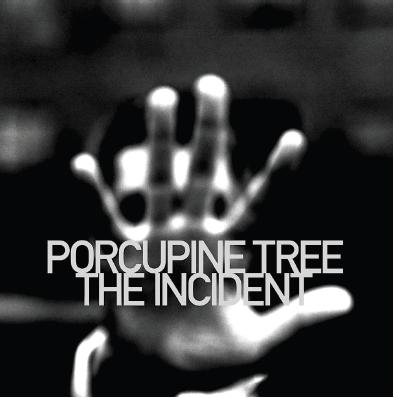
Progressive? Evolutionary? Incident scoffs, defies and challenges mainstream music

by Katrina Albert
Porcupine Tree is a band that is continually evolving, always challenging and never compromising. They can best be defined as progressive rock, however their style frequently includes elements of metal as well as more atmospheric passages.
Each record released in their 18 year career is an artfully crafted, almost cinematic experience. Porcupine Tree does not write songs based for radio play but rather puts an album together with the idea of the listener sitting down and playing it from start to finish. Their newest, the double-disc offering The Incident, is probably the most challenging yet. This ominously named tenth album’s sound and format goes against the grain of what is considered popular in the music industry. However, those interested will find something satisfying here. Porcupine Tree’s music never falls into a particular genre and can’t be summed up in a few words. With The Incident particularly, they continue to go against the curve to map an uncompromising musical journey.
The first disc of The Incident contains a singular piece: a 55-minute song cycle, aptly named “The Incident,” made up of 14 tracks that flow cohesively together but can still be viewed as separate entities. The Incident sounds like a daunting task, but it is an infinitely rewarding experience. To get to the heart of the album it is essential to understand its concept. In an interview posted on the Roadrunner Records website (the band’s label), Steven Wilson, Porcupine Tree’s vocalist, guitarist, main songwriter and composer, says the concept for the album came to him while driving past the scene of a horrific traffic accident. Signs posted at the scene stated simply ‘POLICE – INCIDENT’ and as he watched the passersby slow down and look at the chaos, he began to think about how something so traumatic becomes such a detached experience. Wilson started to think of other such ‘incidents’ and wrote about them from a first-person point of view, forming the bulk of the album’s lyrical content.
Listening to The Incident, the opening track of the cycle, “Occam’s Razor,” starts off with its dramatic riff and I immediately feel unsettled. As the album progresses, it continually introduces dark lyrics and heavy music until the cycle reaches the half-way mark with the 11-minute epic titled “Time Flies.” Possibly the most Pink Floyd-esque song Porcupine Tree has recorded, it harkens back to 1977’s Animals. The song is a romantic adventure stemming from Wilson’s nostalgia for childhood, and it lays in stark contrast to the rest of the album’s themes. It serves as a light moment in all the darkness. “The Incident” later comes to a close with “I Drive The Hearse”. With a title that invokes a sense of melancholy, what was expected to be depressing is actually a beautifully crafted closing ballad, calmly bringing “The Incident” to its conclusion. Though, the journey does not necessarily end there.
The accompanying disc, a four-song EP, while not a part of the song cycle, isn’t to be taken lightly. These are quality songs that didn’t really fit anywhere else. It’s a bonus they are included, as they are just too good to miss out on. The hilariously named “Bonnie the Cat”, stands out, having more of a metal sound with an almost venomous set of lyrics: “There are three things that I would die for And I am sure you are not one of them”, sung in an angry whisper. This song is certainly memorable, at the very least for its contrast between title and theme.
At a point in time when the music industry is firmly planted in downloadable music (either for 99 cents a song or for free—legal or otherwise) it is common for bands to release albums with hit singles accompanied by mediocre filler tracks. The Incident, however, hardly accommodates this era of one-click rewards. Bands that would hardly be considered “radio friendly” such as Tool and Dream Theater fill up entire stadiums. As progressive bands have a solid and ever-growing fan base, sell out shows and break the Billboard 200, maybe there is hope just yet. These bands defy the norm of the music industry and at the same time thrive within it. I’d like to believe this happens because they make satisfying and uncompromising music for themselves, and that their fans appreciate the effort and pay for the albums and concert tickets. Without this financial support from loyal listeners, progressive bands might not have survived a ruthless economic climate. It’s refreshing to see bands that release ten-minute songs share the charts with Miley Cyrus and the Jonas Brothers.
Leave a comment